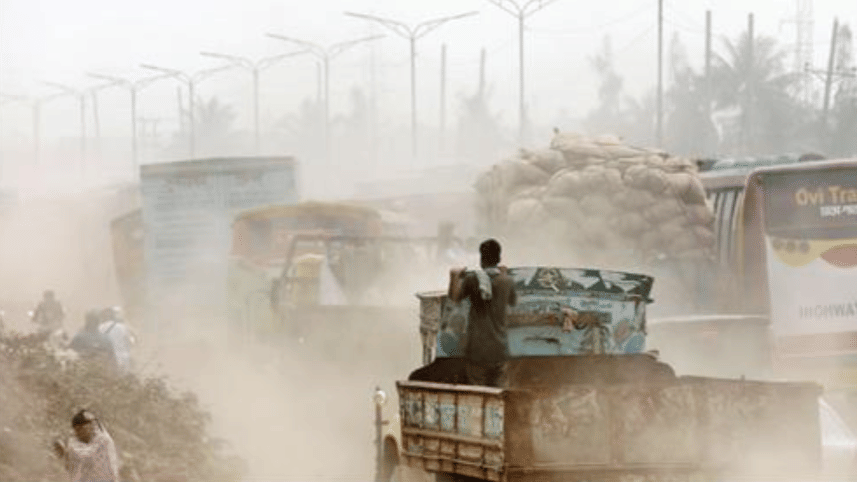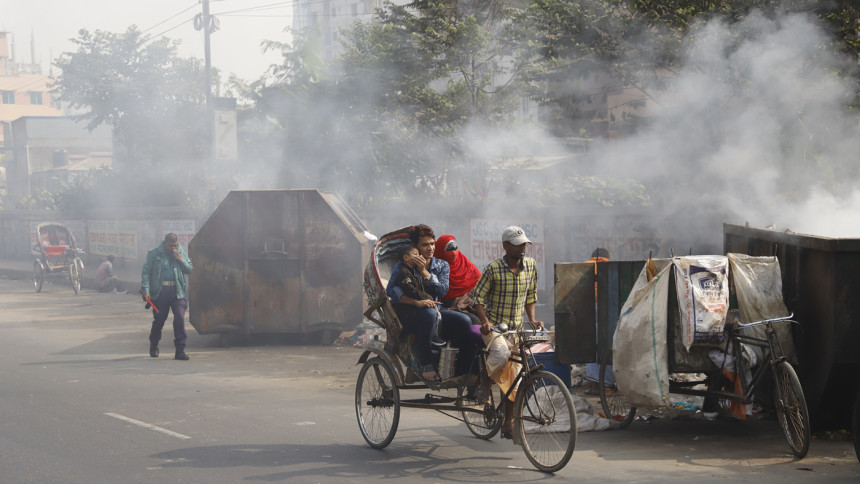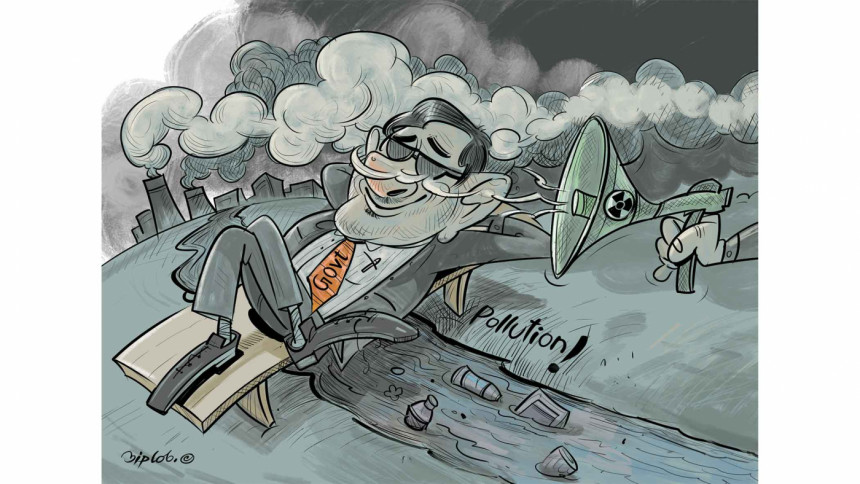Air pollution menace needs effective dust and waste management

Air pollution in Dhaka has been a growing concern for both residents and authorities, with the city consistently ranking among the most polluted in the world. One of the leading contributors to air pollution is the massive amount of dust and waste generated by roadworks, construction projects, and uncoordinated urban development. Experts stress that coordinating government bodies, private stakeholders, and using better technology can reduce dust pollution and improve air quality.
A major source of dust pollution in Dhaka is the frequent road digging for utility work. These frequent disruptions contribute to dust pollution and cause significant traffic jams, leading to further emission of harmful gases from vehicles. According to a report from the Bangladesh Bureau of Statistics (2023), these ongoing disruptions contribute significantly to the declining air quality in the city.
Many roadworks use low-quality materials, improper waste disposal, and unregulated practices, worsening the problem. The lack of permanent utility infrastructure leads to repeated work, increasing dust and debris. A 2022 study by Chowdhury and Khan found that substandard construction practices in Dhaka contribute significantly to air pollution due to poor site waste management.
Experts argue that the solution to this issue lies in the coordination between local and national government bodies, private construction companies, and utility providers. The lack of coordination among involved parties causes inefficiency, with multiple agencies digging up the same roads. The government should enforce a collaborative planning system for coordinated utility work. The World Bank (2020) highlights that coordinated urban planning reduces disruptions, improving resource management and urban environments. Besides the private sector should also be encouraged to adopt best practices, including using modern equipment to minimise dust and waste. For instance, using advanced vacuum trucks to remove debris and dust from construction sites can be a game changer. The World Bank (2020) suggests that such innovations could reduce the burden of air pollution in cities like Dhaka, offering a sustainable way to handle urban infrastructure.
A permanent solution to reducing dust and waste from roadworks is implementing a comprehensive underground utility system. By installing a unified network for water, gas, and electricity, the city can reduce frequent excavations and minimise dust. The World Bank (2020) notes that cities with integrated underground utilities experience fewer disruptions and lower air pollution from roadworks.
Besides, dust control measures, like water spraying systems, can reduce airborne particles during roadworks. Digital mapping tools can track utility installations, minimising future digging and ensuring timely roadworks. This is supported by the 2022 Chowdhury and Khan research.
Another crucial factor in managing dust and waste is ensuring high-quality construction. Low-quality work often leads to cracks and rework, which not only wastes time and resources but also contributes to the continuous disruption of urban areas. The government should impose strict quality standards for all construction and roadworks to prevent the need for repeated repairs. The World Bank (2020) suggests that investment in high-quality infrastructure reduces long-term maintenance costs and improves the city's sustainability.
Private companies should be incentivised to invest in durable, sustainable materials that require fewer interventions. "Green" construction practices, focusing on sustainable materials and waste reduction, should be prioritised in both public and private projects. Research by Chowdhury and Khan (2022) shows that cities with high construction standards experience fewer disruptions and less environmental degradation.
The role of local communities and citizens in reducing dust pollution should not be overlooked. Authorities should engage with residents through awareness programmes on the importance of waste management and reducing unnecessary burning of waste.
Dhaka's air pollution requires a coordinated approach from all stakeholders. By using advanced technology and investing in underground utilities, the city can reduce dust, waste, and create a more sustainable environment. The future of Dhaka lies in long-term planning, collaboration, and the adoption of innovative technologies.
S M Muhaiminul Islam is a researcher and member of the Institution of Engineers, Bangladesh (IEB). He can be reached at muhaiminul@iut-dhaka.edu.
Views expressed in this article are the author's own.
Follow The Daily Star Opinion on Facebook for the latest opinions, commentaries and analyses by experts and professionals. To contribute your article or letter to The Daily Star Opinion, see our guidelines for submission.




 For all latest news, follow The Daily Star's Google News channel.
For all latest news, follow The Daily Star's Google News channel. 

Comments